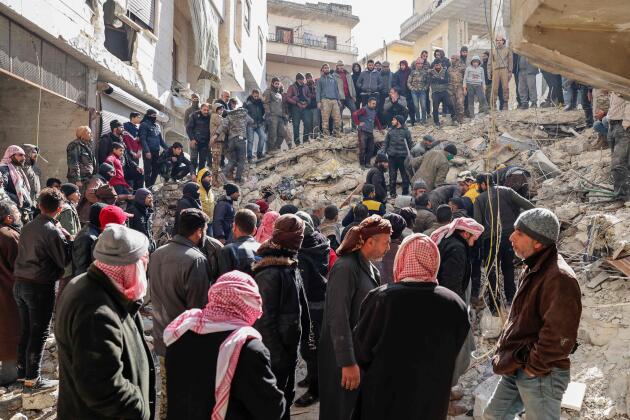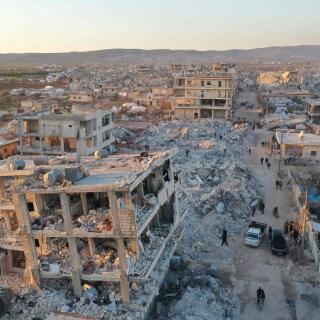For some unknown reason, probably linked to the complex laws of seismology, the earthquakes that ravaged Turkey and northwestern Syria in the early hours of February 6 virtually spared Marea. Located 30 kilometers north of Aleppo and around a hundred kilometers from the epicenter, in an area that is still struggling to count its dead and injured, the village shook, minarets collapsed and some walls fell, killing a 35-year-old disabled woman.
After the initial danger, inhabitants sought news from their relatives. Since 2011, many of them had fled this opposition stronghold to the Damascus regime, becoming displaced people in the province of Idlib, or refugees on the other side of the border, in Turkey – areas where the number of victims now exceeds 36,000. The villagers then came to their neighbors' aid in Sawran, which did not withstand the tremor. In this tiny hamlet, using the light of simple cell phones, with their bare hands or with the help of rudimentary tools, 32 bodies were pulled from the rubble.

Amid this outpouring of bad news, no one in Marea expected the events of the following night. "Artillery fire rang out shortly after midnight," said Hussein Al-Khatib, 27, who spoke to us by phone from Marea, describing himself as a citizen journalist. "Shells crashed down on the edge of the village without causing any casualties. Twenty-four hours after the earthquake, people were expecting an aftershock, but not this!"
Marea, the birthplace of the Free Syrian Army, the rebel group that seized the eastern neighborhoods of Aleppo from 2012 to 2016, is now controlled by Syrian National Army, a pro-Turkish militia. Here, the war against President Bashar al-Assad's forces has never stopped. According to Hussein, despite years of civil war, the scale of the disaster caused by the previous day's earthquakes gave hope for some kind of truce – however informal – for obvious humanitarian reasons: "No one understood the purpose of these strikes. We couldn't even figure out if they were coming from a position held by the regime, or from another, held by the Kurds." For the villagers, he said, it was just "despair adding to despair."
Across the earthquake-stricken part of north-west Syria, numerous political fractures on the ground are complicating the rescue operation and hampering the delivery of vital aid – if not blocking it altogether. In each area, whether considered loyal to Assad (Latakia and the hinterland), controlled by the government (the vast majority of Aleppo province), by the opposition led by the interim Syrian government supported by Turkey (north of Aleppo), or by the jihadists of Hayat Tahrir al-Sham (Idlib), the Syrian people are now in a humanitarian impasse. This inferno is frozen by political calculations that are disconnected from reality.
You have 83.61% of this article left to read. The rest is for subscribers only.














